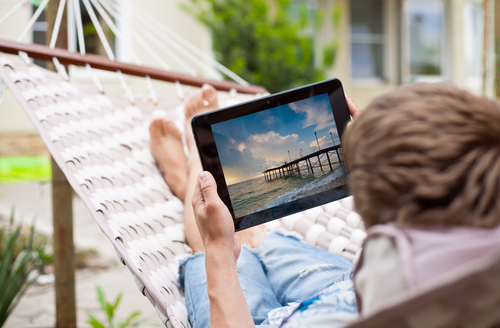New tablets such as the Apple iPad Mini, the new Android tablets and Microsoft’s Surface tablet illustrate the changing computing device landscape, where the majority of human interaction with computing shifts away from PCs and to other devices. But one reason for the shift is an obvious shift in “things people do with computing appliances.”
A new study of how people use tablets reinforces what other studies have found, namely that tablets are personal content consumption devices, not “work” devices used in “non-work” settings such as couches, beds and kitchens.

Image via Shutterstock
The Google researchers tracked the way 33 U.S. tablet users interacted with their devices, and found that tablets primarily are used for personal purposes and to play games and check e-mail.
Tablets also are “lean back“ devices used in bed, on couches and while cooking, for example.
A majority of tablet sessions involved multitasking. More than 60 percent of the participants watched TV while using their tablets. About 40 percent used their tablets while eating and drinking, while 27 percent used their tablets while cooking.
The Google study also found that many of the participants just used TV as background noise while checking their e-mail and doing other things completely unrelated to watching TV.
Across all reports of tablet use, the most frequent activities were checking e-mails (with light responding), playing games, social networking, looking up and searching information, listening to music, shopping (browsing and purchasing), lightweight content creation (notes, lists,forms), reading a book, checking the weather, reading news, watching TV/movies/videos, and conducting a local search.
Tablets were used for more activities during a typical weekday as compared to a typical weekend day: 61 percent of usage (1.86 incidences) occurred on a typical weekday and 39 percent (1.21 incidences) occurred during a typical weekend day.
Weekdays showed more frequent e-mail checking, managing of calendars, and checking the weather, but also included longer activities such as listening to music or social networking.
Activities such as watching videos, playing games, reading and shopping were more frequently done on weekends. Collectively, the changing device base reflects the shift in what people want to do with computing appliances.
Edited by
Brooke Neuman